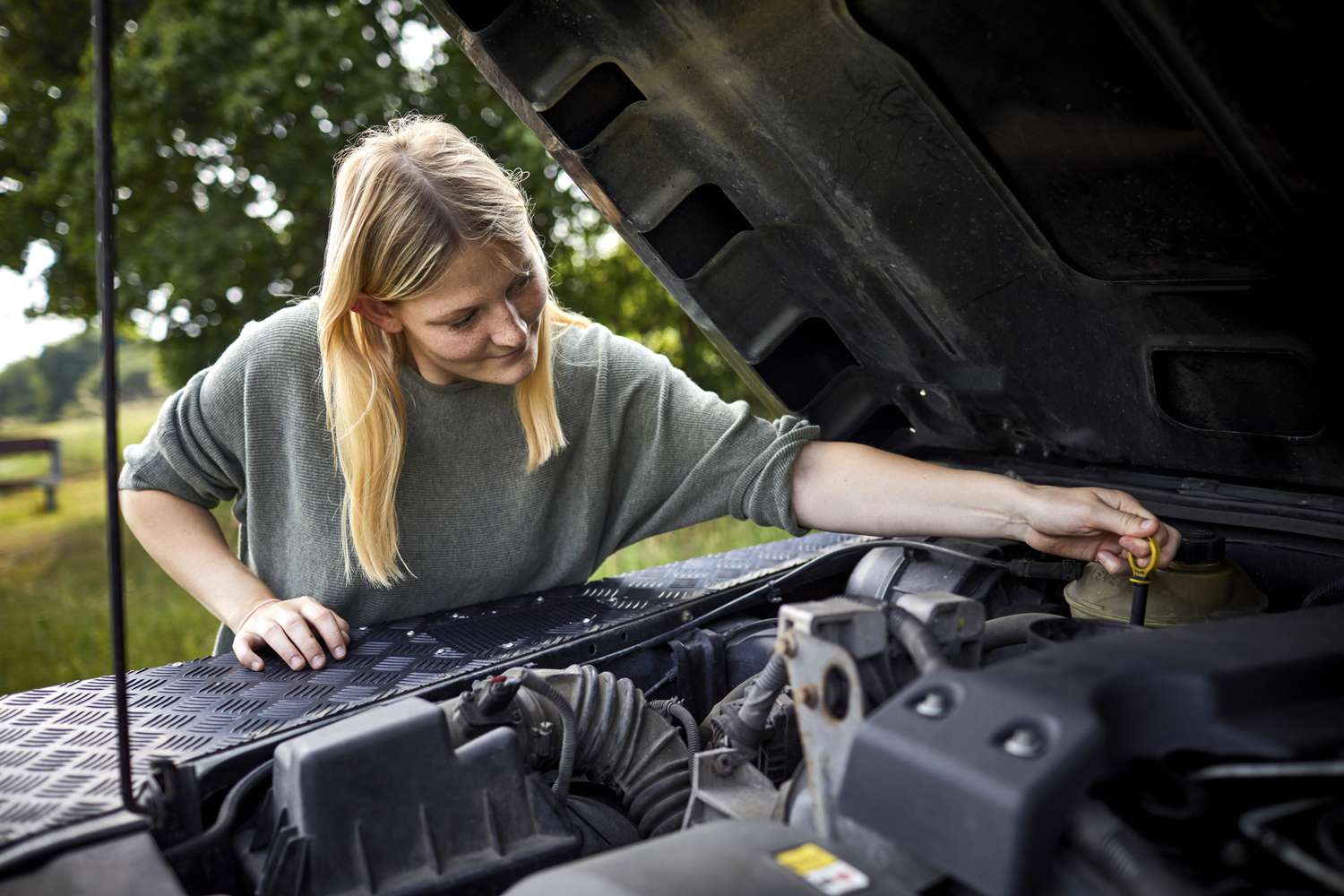Your car is more than just a mode of transportation; it’s an extension of your daily life. Whether you’re commuting to work, running errands, or embarking on weekend adventures, keeping your vehicle in top shape is essential. Routine car service isn’t just about fixing problems as they arise—it’s about preventing them from happening in the first place.
Imagine cruising down the highway with confidence, knowing that every part of your vehicle has been meticulously checked and maintained. Sounds ideal, right? Regular maintenance can save you money in the long run by extending the lifespan of your car and enhancing its performance.
In this post, we’ll dive into everything you need to know about routine car service—from understanding why it’s important to creating your own checklist for optimal performance. Buckle up! It’s time to take control of your ride’s health and keep it running smoothly for miles ahead.
Understanding the Importance of Routine Car Service
Routine car service is crucial for maintaining your vehicle’s efficiency and safety. Just like regular check-ups keep you healthy, consistent maintenance ensures your car operates at its best.
Neglecting routine service can lead to minor issues snowballing into major problems. A simple oil change today could prevent engine failure tomorrow.
Additionally, a well-maintained vehicle holds its value better over time. Prospective buyers often look for cars with documented service histories.
Safety is another significant factor. Regular checks help identify worn-out brakes or faulty tires before they become hazards on the road.
Routine servicing enhances fuel efficiency. An engine that runs smoothly consumes less fuel, saving you money at the pump while benefiting the environment in the process.
The Benefits of Regular Maintenance
Regular maintenance plays a crucial role in extending the life of your vehicle. It helps identify potential issues before they escalate into costly repairs. This proactive approach saves you money in the long run.
Consistent service also enhances safety on the road. A well-maintained car is less likely to experience breakdowns or malfunctions, providing peace of mind for both drivers and passengers.
Additionally, routine check-ups can improve fuel efficiency. When components like air filters and oil are kept in top shape, your engine runs more smoothly, helping you save at the pump.
Moreover, regular inspections can boost resale value. A documented service history indicates to future buyers that you’ve taken good care of your vehicle.
Engaging in regular maintenance not only contributes to performance but also adds enjoyment to driving. A reliable car makes every journey more pleasant and worry-free.
Step-by-Step Guide for Your Routine Car Service Checklist
Creating a routine car service checklist is essential for maintaining your vehicle’s health. Start by checking the oil level. This ensures your engine runs smoothly.
Next, inspect the tires. Look for proper inflation and tread wear. Rotate them if necessary to promote even usage.
Don’t forget about brake pads. They’re crucial for safety, so check their thickness regularly.
Move on to fluid levels: coolant, transmission fluid, and windshield washer fluid all need attention too. Topping them off can prevent bigger issues down the line.
Inspect belts and hoses as well; any cracks or frays indicate they may need replacing soon.
Clean or replace air filters according to manufacturer guidelines. A clean filter improves performance and fuel efficiency.
Following this step-by-step guide helps you stay proactive in keeping your car in top condition while avoiding costly repairs later on.
Common Services Included in a Routine Maintenance Appointment
Routine maintenance appointments generally cover essential services that keep your vehicle in top shape. One of the most common checks includes oil changes, crucial for engine health. Fresh oil lubricates moving parts and enhances performance.
Tire rotations are another staple service. Regular rotation promotes even tire wear, extending their lifespan and improving fuel efficiency.
Brake inspections can’t be overlooked either. Mechanics assess brake pads, rotors, and fluid levels to ensure safety on the road.
Fluids like coolant, transmission fluid, and windshield washer fluid also receive attention during these visits. Keeping them at optimal levels prevents potential issues down the line.
Battery checks help avoid unexpected failures. A simple test can reveal if it’s time for a replacement or just a clean-up of corrosion build-up. Each of these services works together to enhance your car’s reliability and longevity.
Tips for Finding a Reliable and Trustworthy Mechanic
Finding a reliable mechanic can feel overwhelming. Start by asking friends and family for recommendations. Personal experiences can lead you to trustworthy professionals.
Next, check online reviews. Websites like Yelp or Google Reviews provide insights from customers. Look for mechanics with consistently high ratings.
Don’t forget to verify certifications. A qualified mechanic should have industry-recognized certifications, indicating they’re trained and knowledgeable about various car models.
Visit the shop in person if possible. Observe how organized it is and whether staff are friendly and willing to answer questions.
Consider starting with minor services like an oil change or tire rotation before committing to more extensive repairs. This way, you can gauge their reliability without significant investment upfront.
DIY vs Professional Service: Which is the Better Option?
When it comes to car maintenance, the DIY route can seem appealing. Tackling simple tasks like oil changes or air filter replacements can save money and empower you as a car owner. It’s satisfying to roll up your sleeves and get hands-on.
However, not every job is suited for the backyard mechanic. Complex issues often require specialized knowledge and tools that most people don’t possess. A professional mechanic brings expertise that ensures repairs are done correctly and safely.
Moreover, there’s peace of mind in knowing a trained eye has inspected your vehicle. They can spot problems before they escalate into costly repairs.
Think about what you’re comfortable with. If you’re confident in tackling basic upkeep but wary of intricate systems, a hybrid approach might be best—do the easy stuff yourself while leaving major repairs to the pros.
Conclusion: Keep Your Car Running Smoothly with Routine Maintenance
Routine maintenance is essential for keeping your vehicle in top shape. It not only enhances performance but also extends the life of your car. By following a structured service checklist, you can ensure that no aspect of your vehicle is overlooked.
Prioritizing regular check-ups helps catch potential issues before they escalate into costly repairs. Each component plays a vital role in the overall functioning of your car, making it crucial to address them promptly.
Investing time and effort into maintaining your vehicle pays off in reliability and safety on the road. Whether you choose to tackle some tasks yourself or rely on professionals, what matters most is being proactive about care.
A well-maintained car leads to fewer surprises and a more enjoyable driving experience. With diligence and attention to detail, you can keep your ride running smoothly for years to come.

